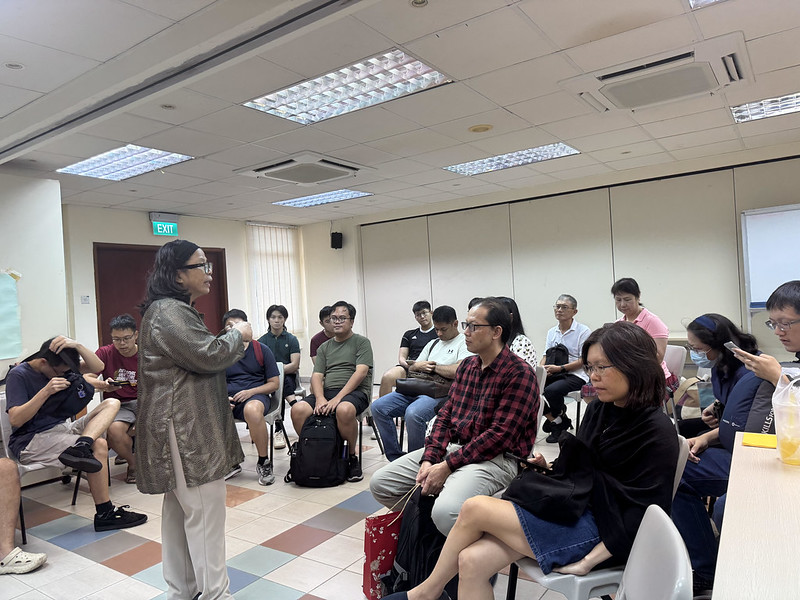
On 25-Jan-2025, we hosted an insightful session as part of our Conversation on Humanism series on Irreligiosity and Mental Health.
This engaging discussion explored the intersection of secular values and mental well-being, addressing key questions like: How does irreligiosity influence mental health, and how can we, as humanists, foster resilience and support?
Key Highlights
Understanding Humanism and Mental Health:
The session began with a broad exploration of humanism, emphasizing its values of compassion, reason, and community. Participants discussed how these principles shape mental well-being in secular contexts.
Insights from Mental Health Statistics and Research:
We delved into local mental health statistics, including findings from the Institute for Health Metrics and Sofia Wellness Clinic, highlighting the growing challenges faced by Singaporeans.
Studies on the relationship between religion and mental health, such as the Straits Times report, were discussed alongside the unique experiences of irreligious individuals.
Debunking Stereotypes:
There is a common misconception that irreligious individuals lack purpose or face higher rates of depression and suicide simply because they don’t adhere to a faith community. However, mental health is influenced by a variety of factors genetics, environment, social support, and personal life experiences rather than religious affiliation alone.
Irreligious people, like those with a religion, can find meaning in family, friendships, personal goals, or ethical and humanitarian values. This highlights that a lack of religious belief does not inherently lead to poor mental health; well-being is shaped by complex, multifaceted influences.
Interactive Activity:
An engaging session on values and coping mechanisms encouraged participants to reflect on their personal approaches to mental health and how their values shape their resilience.
A Humanist Approach
We discussed the “three-prong approach” to mental health which emphasises a holistic framework. It involves three key dimensions:
1. Psychological: Humanism and Mental Well-being
Focuses on fostering emotional resilience and self-awareness through reason, critical thinking, and evidence-based practices like journaling, mindfulness and therapy to build a supportive communities were shared as effective tools for maintaining mental well-being.
2. Existential: Building Meaning and Purpose
Humanists seek answers to life’s big questions—such as existence, morality, and the afterlife—through reason, critical thinking, and shared human experience rather than doctrine. They value personal growth, embracing evolving perspectives shaped by curiosity, compassion, and fairness.Meaning is often found in relationships, creativity, scientific exploration, and contributions to society. Whether through deep personal connections, artistic expression, activism, or altruism, humanists recognize that purpose is self-created and enriched by the positive impact we have on others and the world around us.
3. Social: Supportive Community
Providing a safe and inclusive spaces where irreligious individuals can openly share beliefs, experiences, and support. Rooted in empathy, reason, and respect for autonomy, these communities help combat isolation and foster a sense of belonging.Beyond social connections, we should promote secular mental health initiatives, including access to non-religious therapists, peer support groups, and evidence-based well-being programs. By encouraging open dialogue and resilience, these efforts ensure that individuals can seek help and thrive without religious judgment.
The session concluded with an open discussion and a call to action, acknowledging that Compassion is at the heart of building strong, supportive secular and humanist communities. By fostering meaningful connections, we create inclusive spaces where individuals feel valued and understood. We encourage everyone to seek support when needed and extend kindness to those around them, reinforcing the humanist commitment to mutual care, empathy, and shared well-being.
A quote by Robert G. Ingersoll beautifully captured the essence of the evening: “Happiness is the only good. The time to be happy is now. The place to be happy is here.”
We’re grateful to everyone who joined us for this meaningful conversation. Stay tuned for updates on upcoming events, including the next session in the Conversation on Humanism Series!




